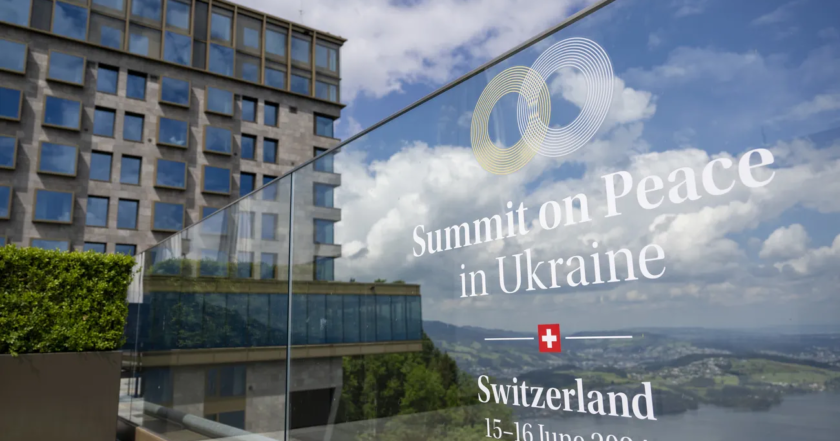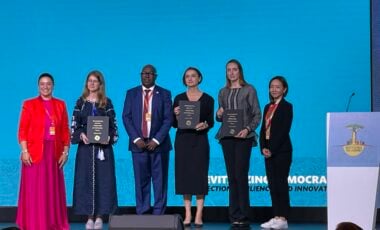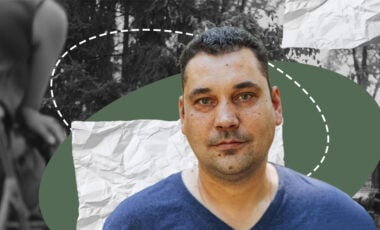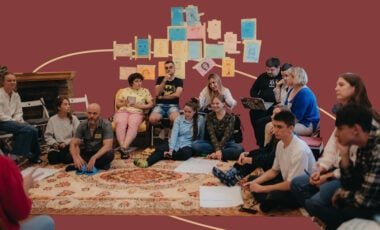Global Summit Struggle for Global South

On June 16, a two-day Kyiv-initiated summit in Switzerland, which discussed conditions for ending the war in Ukraine, came to a close. Delegations from 92 countries and eight organizations, including the UN and the Ecumenical Patriarchate, were among the attendees. The event was significant due to its broad geographic representation, the issues discussed, and potential impact on the global order. Although this statement may seem exaggerated, events of such magnitude always leave a mark. It all depends on how they are interpreted and what happens next. The room for speculation and predictions is vast.
Media already provided a lot of high-quality and fascinating commentary about the first Global Peace Summit, ranging from optimistic to more down-to-earth perspectives. Let's briefly highlight a few points:
- To achieve broader representation, Kyiv reduced the points in its peace formula from ten to three.
- The decision was partly a gesture to China, which was not reciprocated, and partly due to compromising and merging the best proposals from other existing plans. Switzerland identified at least six, so the selected points were common across these plans.
- The focus on returning control of the Russian-occupied Zaporizhzhia nuclear plant to Ukraine, ensuring access to ports in the Black and Azov seas, and a full prisoner exchange was a pragmatic minimum that satisfied most summit participants enough to sign the communique.
We could end this dry assessment here, but Western media criticized the final document and the entire summit: real peace is no closer, and the focus on long-standing international law principles ignored by Russia seemed weak. This criticism wasn't aimed at Ukraine, which cannot impose more explicit, firmer language on its partners and neutrals expressing the need to punish the aggressor. This disparity is illustrated by a translation error in Italian Prime Minister Giorgia Meloni's speech at the summit: she said, "Ukraine would be forced to surrender without Western support," which was translated as "Russia will be forced to surrender if it doesn't agree to Western terms." The difference is significant.
"Feigned Indifference" Operation: How Russia responded to the summit
The document affirmed Ukraine's right to territorial integrity but did not mention "Russian aggression." Similarly, Russia disregarded the summit but did not ignore it. Its efforts to counteract the summit's information impact showed anything but indifference. Despite former Russian President Dmitry Medvedev's sarcastic comments, the summit concerned Russia greatly.
Russia launched several initiatives to distract attention from the summit. It organized the annual BRICS Games in Kazan just days before the summit in Bürgenstock, Switzerland. While this was likely aimed at overshadowing the European Football Championship, it also sought to overshadow the summit. Then, Putin proposed his "peaceful initiatives," which failed to sway the peace conference, coinciding with a hostage crisis in a Rostov detention center. The presence of a high-ranking colonel at the detention center for no apparent reason was one of many unexplained aspects of the incident. The involvement of ISIS prisoners seemed like a message to the world: while you play at peace in Ukraine, radical Islamism still poses a real threat.
Finally, on the night of June 15-16, the "Dvoynik" bots — the Kremlin's largest disinformation network targeting Western audiences — posted 50 fake quotes on X, retweeting them over 120,000 times and garnering over 500,000 views. The fake statements from global celebrities called for an end to aid for Ukraine and predicted Europe's destruction. Russian media experts suggested this was a response to the European Parliament elections, but this explanation falls short. The election results cannot be changed, but the perception of the summit can be influenced.
Russian propaganda labeled the summit a failure: not all 193 countries attended, not all attendees signed the final declaration, no one volunteered to host the next meeting, and the summit didn't end the war. In reality, these were never the goals. However, Russia stressed that Ukraine's vision of peace isn't popular and the conflict can't end without meeting Russia's conditions. Despite Russia's complaints, three countries — Turkey, Saudi Arabia, and Qatar — offered to host the next summit. Other Russian media attacks are also easy to dispel. The group that disagreed with the final statement posed a challenge, but whether this was due to Russian interference or Ukrainian shortcomings is unclear. While this didn't make the summit a failure, it didn't make it a breakthrough.
We support you, but from the sidelines: How the Global South responded to the summit
Out of the 92 countries and four organizations at the summit, 77 signed the final communique. Participants deemed crucial to the summit by the media, including India, South Africa, Saudi Arabia, Mexico, and Brazil, did not support the statement. Other countries that abstained included Bahrain, the Vatican, Thailand, Indonesia, the UAE, Armenia, Libya, Iraq, Jordan, and Rwanda. Interestingly, the last three initially were among the signatories. This shifting support might continue due to the non-binding nature of the communique, which is open to new signatories even if they didn't attend the peace conference. The nomadic behavior between support and the lack of will continue.
Now, let's examine the "justified reasons" provided by Global South countries for not fully supporting Ukraine's efforts for a just peace in the war of survival. The "world majority" opinions are crucial, not just for peace in Ukraine but globally.
Some representatives lacked the authority to sign documents without consulting their national governments. Brazil and the Vatican had observer status. For some countries, not signing the declaration was a principled stance.
India believes the conflict can only be resolved through direct interaction between the parties and thus didn't associate with the document. However, the real reason might be India's dependence on Russia for defense contracts and discounted crude oil imports. Mexico took the same position and emphasized the need to include Russia in discussions, transfer peace efforts to the UN, and "gradually build trust through agreements and actions," as evidenced by its decision to reopen its embassy in Ukraine on June 16.
Saudi Arabia's willingness to aid the peace process depends on the "viability of the settlement" and the parties' readiness for a "tough compromise." This stance is similar to India's.
South Africa focused on efforts to "promote steps to end the war, not manage it." It refused to sign the declaration due to two formal reasons. First, Israel's presence at the summit, as South Africa has filed a Palestinian genocide case against Israel at the International Court of Justice, and second, the interpretation of the nuclear weapons ban as applying only to the war in Ukraine, whereas it should apply globally. This position might seem like an attempt to stretch a narrow issue into a broader context, but it shows some level of the country's autonomy.
Of the 92 countries at the summit, 57 were represented by their heads of state or government, while Asian countries, except Japan and East Timor, sent diplomats. The absence of Asian leaders doesn't necessarily indicate a pro-Russia stance but skepticism about the summit's prospects without Russia. While Singapore and the Philippines supported Ukraine, their representation by ministers reflects a regional view that European events are beyond their direct influence. For Asia, the conflict in Ukraine seems distant and not a primary concern despite its impact on grain supplies and fossil fuel prices.
Pakistan declined Switzerland's invitation, citing "scheduling conflicts and other considerations." Malaysia's absence suggests that the country is focusing on the crisis in Myanmar, which it considers more critical as next year's Association of Southeast Asian Nations (ASEAN) chair. Vietnam is preparing for an official visit by Vladimir Putin, so ignoring the European track is understandable. Thailand acknowledged the importance of helping Ukraine mitigate the war's impact on agriculture and supports global food security initiatives like the Black Sea Grain Initiative. Still, it didn't sign the joint statement, preferring to focus on direct support projects.
China's position on the war in Ukraine has a significant impact both regionally and globally. Foreign Ministry spokesman Lin Jian stated that China would not comment on the summit results or the final communique but maintain a "consistent and clear position" on the Ukrainian issue. However, before the summit, China's deputy permanent representative to the UN Security Council, Geng Shuang, called for peace talks. This statement had notable nuances:
- He referred to the "parties in the conflict" without naming them, aligning with the Kremlin's narrative that NATO, the US, and other countries are directly involved in the fighting on Ukraine's side. This downplays the role of the Ukrainian Armed Forces in defeating the Russian army. It also blurs Ukraine's agency, indirectly promoting the Russian view of Ukraine being under
"external control." - He emphasized the need to unite efforts to ensure the "crisis does not spill over into other territories." This is consistent with China's framing of the war as a "Ukrainian crisis" and indicates Beijing's acknowledgment of the potential for the conflict to expand or new points of tension to arise, possibly hinting at Taiwan.
What's next?
Ukraine could leverage the colonial history of these countries, drawing parallels with the nature of Russian aggression, similar to the European colonialism they once faced. The challenge is that Russia's propaganda has already occupied this narrative space, portraying Russia as a victim of Western expansion and deserving solidarity from other formerly colonized nations. Despite Russia selectively claiming the legacy of the Russian Empire — culturally but not in terms of its aggressive wars — it has garnered support from those who should logically oppose it.
A quick look at the summit's participant map highlights the strategic position of Global South countries, which have recently gained significant influence in geopolitical dealings. However, this influence may not last; as the saying goes, "Easy come, easy go." The South's ambivalence and duplicity about justice and morality threaten to shift the established principle of "no negotiations about Ukraine without Ukraine" to "nothing about Russia without Russia." The position of the southern countries not merely presents the aggressor and its victim together but indulges the violator of international law under the guise of adhering to its principles.
How can Ukraine convey this message to the Global South without resorting to coercion and without losing potential allies? This is a complex question Ukraine must find the answer to before the next summit. This likely explains why official Kyiv is focusing on the South African President's National Security Advisor, Sydney Mufamadi—balancing high-level diplomacy with intelligence is essential for this task.





















































